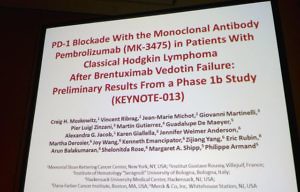September BSB Reader Mailbag
After some relatively quiet summer months, we have been deluged with questions and requests this month for commentary on some hot topics of late. This seems like a good time to take stock and reflect on some of most frequent ones sent in.
 The original Journal Club post slated for today will appear next week instead.
The original Journal Club post slated for today will appear next week instead.
Here, we address numerous queries on the following five topics readers are interested in:
- APHINITY trial in HER2+ adjuvant breast cancer
- Array’s BRAF plus MEK data in metastatic melanoma
- Kite’s interim ZUMA–1 phase 2 announcement
- Amgen’s Kyprolis in newly diagnosed multiple myeloma
- BMS nivolumab data in 1L lung cancer (CheckMate-026)
The last two in particular seem to be causing a lot of hand-wringing!
To learn more about our insights, subscribers can log-in…
This content is restricted to subscribers
 This is the third in our mini-series previewing the forthcoming European Society for Medical Oncology 2016 Congress in Copenhagen (Twitter #ESMO16).
This is the third in our mini-series previewing the forthcoming European Society for Medical Oncology 2016 Congress in Copenhagen (Twitter #ESMO16). If you are sitting on the fence as to whether you should go to Copenhagen, then hopefully our series of Previews will help you decide.
If you are sitting on the fence as to whether you should go to Copenhagen, then hopefully our series of Previews will help you decide. How does an exciting early product in development move from academia to industry? There are many ways to do this, so here is the story through the eyes of one young company with strong academic connections, as a way to illustrate what can be done. It isn’t the only way, by any means.
How does an exciting early product in development move from academia to industry? There are many ways to do this, so here is the story through the eyes of one young company with strong academic connections, as a way to illustrate what can be done. It isn’t the only way, by any means.
 For those of you who are working in the targeting therapy world, take heart, there is a future beyond cancer immunotherapy; it is not the universal panacea and will likely not cure every cancer, at least for now.
For those of you who are working in the targeting therapy world, take heart, there is a future beyond cancer immunotherapy; it is not the universal panacea and will likely not cure every cancer, at least for now. It’s Tuesday at the 2016 JP Morgan Healthcare conference in San Francisco (Twitter #JPM16).
It’s Tuesday at the 2016 JP Morgan Healthcare conference in San Francisco (Twitter #JPM16). One of the hotly debated topics at the 2014 American Society of Hematology (ASH) annual meeting was the arrival of checkpoint data in classical Hodgkin’s lymphoma (cHL), with initial data presented on 20-30 patients with relapsed or refractory cHL who received either nivolumab (BMS) or pembrolizumab (Merck) in open label, single agent trials.
One of the hotly debated topics at the 2014 American Society of Hematology (ASH) annual meeting was the arrival of checkpoint data in classical Hodgkin’s lymphoma (cHL), with initial data presented on 20-30 patients with relapsed or refractory cHL who received either nivolumab (BMS) or pembrolizumab (Merck) in open label, single agent trials.
